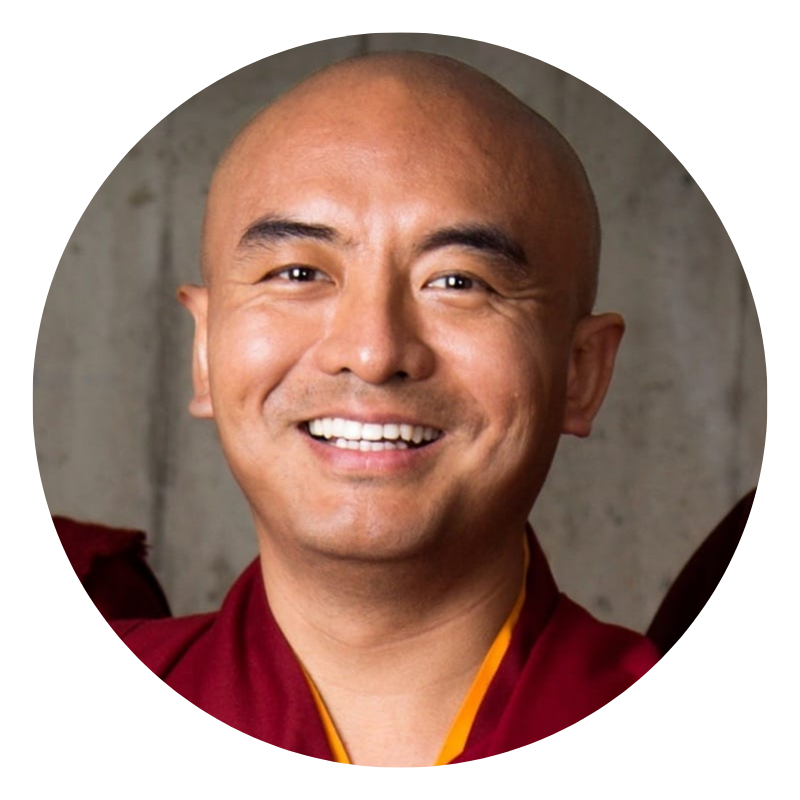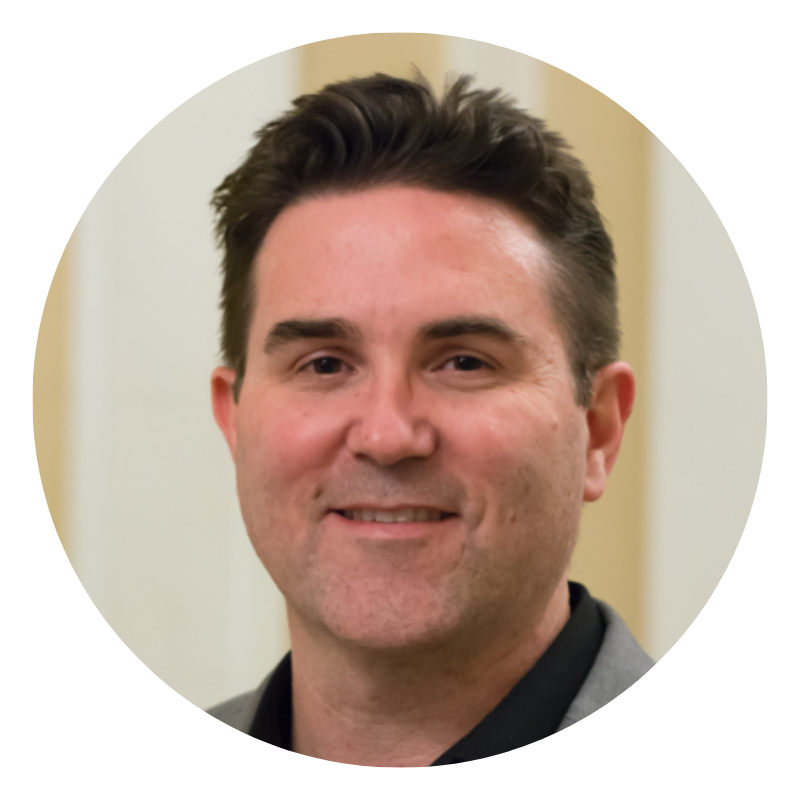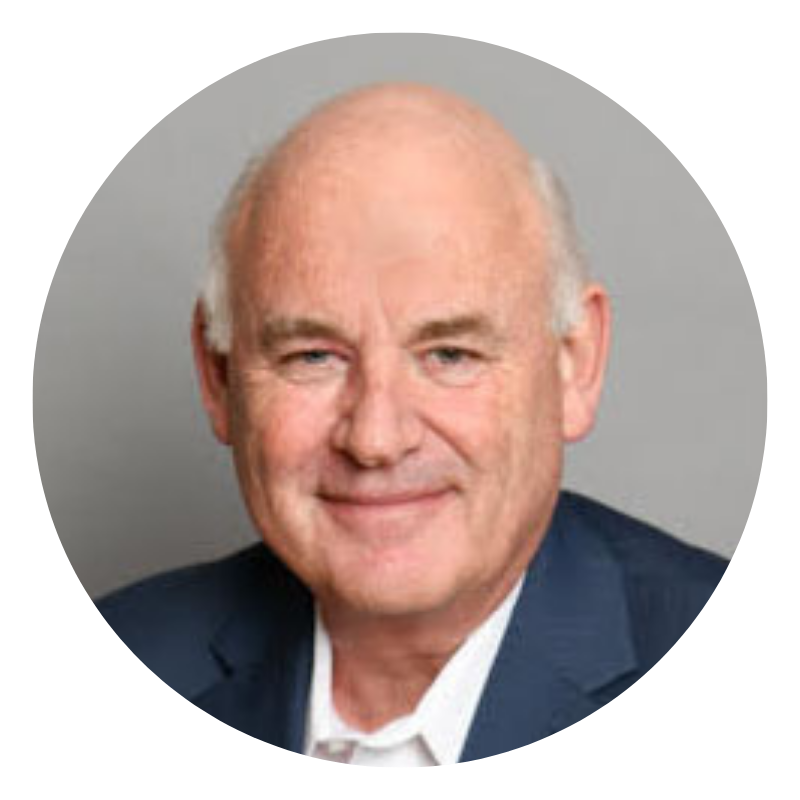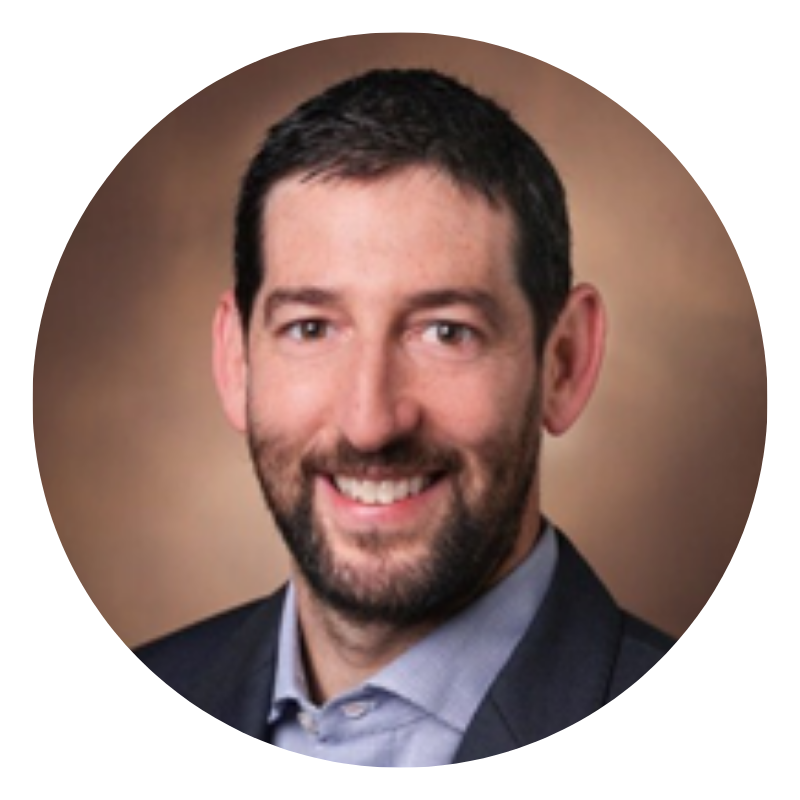Below you can find more information about all of the featured speakers in the course Buddhism and Science: Body, Breath, and Mind.
 Tenzin Wangyal Rinpoche
Tenzin Wangyal Rinpoche
Founder and spiritual director of Ligmincha International, Geshe Tenzin Wangyal Rinpoche is a respected and beloved teacher and meditation master in the Bön Buddhist tradition of Tibet. He has students in more than 25 countries, teaches around the world and reaches thousands of students through his online programs. Trained as a Bön monk, Rinpoche now lives as a householder, allowing him to more fully relate to the needs and concerns of his students. Known for the depth of his wisdom and his unshakeable commitment to helping students recognize their true nature, he is the author of many books and online courses.

Yongey Mingyur Rinpoche
Yongey Mingyur Rinpoche was born in the Himalayan border regions between Tibet and Nepal and spent many years of his childhood in strict retreat. At age 17 he became a teacher at his monastery’s three-year retreat center. After completing the traditional Buddhist training in philosophy and psychology, he founded a monastic college at his home monastery in northern India. Mingyur Rinpoche has had a lifelong interest in Western science and psychology. In 2002, he was invited to the Waisman Laboratory for Brain Imaging and Behavior at the University of Wisconsin-Madison, where scientists examined the effects of meditation on the brains of advanced meditators. The results of this groundbreaking research were reported worldwide. In June 2011 Mingyur Rinpoche walked out of his monastery in Bodhgaya, India, to begin a four-and-a-half-year “wandering retreat” through the Himalayas and the plains of India. When not attending to the monasteries under his care in India and Nepal, Rinpoche spends time each year traveling and teaching at his centers on five continents.
 Daniel Aitken, PhD
Daniel Aitken, PhD
Daniel is the CEO and Publisher of Wisdom Publications. He is the host of the Wisdom Dharma Chats and the Wisdom Podcast, which has had over a million downloads. Daniel reads Tibetan and has studied Sanskrit and has a PhD in Buddhist Philosophy. His lifelong interest in Tibetan Buddhism, the Tibetan language, and its literature has taken him across Australia, America, India, Nepal, and Tibet to pursue a deeper understanding of Buddhist theory and practice with masters from the living tradition. He is also an experienced business executive with over a decade of insights gathered from corporate and consumer marketing executive roles working for multinationals such as Canon, and large financial firms such as Westpac.

Alejandro Chaoul, PhD
Alejandro Chaoul-Reich is the founder and director of The Jung Center’s Mind Body Spirit Institute. He has been a student of Tibetan Buddhism since 1989, and particularly in the Bön tradition since 1991. Ale is a senior teacher with The 3 Doors and a Tibetan yoga and meditation teacher for Ligmincha International. As an assistant professor and director of education at MD Anderson Cancer Center’s Integrative Medicine Program, for 20 years Alejandro taught Tibetan meditation to cancer patients, their families and caregivers, and researched the effects of Tibetan mind-body practices with cancer patients. He was recently named a fellow of the Mind and Life Institute.

Deepak Chopra™ MD, FACP
Founder of The Chopra Foundation, a non-profit entity for research on well-being and humanitarianism, and Chopra Global, a whole health company at the intersection of science and spirituality, is a world-renowned pioneer in integrative medicine and personal transformation. Chopra is a Clinical Professor of Family Medicine and Public Health at the University of California, San Diego and serves as a senior scientist with Gallup Organization. He is the author of over 90 books translated into over forty-three languages, including numerous New York Times bestsellers. His 90th book and national bestseller, Metahuman: Unleashing Your Infinite Potential (Harmony Books), unlocks the secrets to moving beyond our present limitations to access a field of infinite possibilities. For the last thirty years, Chopra has been at the forefront of the meditation revolution and his next book, Total Meditation (Harmony Book, September 22, 2020) will help to achieve new dimensions of stress-free living and joyful living. TIME magazine has described Dr. Chopra as “one of the top 100 heroes and icons of the century.” www.deepakchopra.com

James Duffy, MD
James Duffy is currently professor of Clinical Psychiatry at the University of California, San Francisco Weill Institute for Neurosciences in the School of Medicine. He has previously been a full professor at Cornell, the University of Texas, and the University of Connecticut. He is an elected Fellow of the American Neuropsychiatric Association and the American Academy of Hospice and Palliative Medicine and is board certified in psychiatry, integrative medicine, psychosomatic medicine and medical acupuncture. Jim has a long-held interest in contemplative approaches to healthcare. He lives in the Bay area with his family.
 Menas Kafatos, PhD
Menas Kafatos, PhD
Menas C. Kafatos is the Fletcher Jones Endowed Chair Professor of Computational Physics at Chapman University and director of the Center of Excellence in Earth Systems Modeling and Observations. Author, physicist and philosopher, he works in quantum mechanics, cosmology, the environment, climate change and natural hazards, and extensively on philosophical issues of consciousness, connecting science to metaphysical traditions. He leads collaborations of his research teams with a number of universities and international institutions. He holds seminars and workshops for individuals, groups and corporations on the universal principles for well-being and human potential, and works extensively and leads projects in all areas of hazards as well as the impact of climate change on agriculture and natural ecosystems. He is the author of 334 refereed articles and book chapters in Earth and space, quantum mechanics and philosophy, and interdisciplinary publications.

Michael Sheehy, PhD
Michael Sheehy is research assistant professor in Religious Studies, Director of Scholarship at the Contemplative Sciences Center and affiliated faculty with the Tibet Center at the University of Virginia. His work gives attention to Buddhist philosophy of mind, practices of contemplation and the history of thought in Tibet. Previously, he was director of programs at the Mind & Life Institute, a leading organization for scientific research on contemplation. His current research focuses on Tibetan yoga and meditation manuals, and interpretative discourses about Buddhist contemplative practices in the cognitive sciences, cultural psychology and the humanities. He is co-editor of The Other Emptiness: Rethinking the Zhentong Buddhist Discourse in Tibet (SUNY 2019).

Sat Bir Singh Khalsa, PhD
Sat Bir Singh Khalsa, PhD is director of research for the Yoga Alliance and the Kundalini Research Institute, and assistant professor of medicine, Harvard Medical School. He has conducted scientific yoga research since 2001 on yoga for insomnia, stress, anxiety disorders, and workplace and school settings and is a practitioner/instructor of Kundalini Yoga as taught by Yogi Bhajan. He coordinates the annual Symposium on Yoga Research, is editor-in-chief of the International Journal of Yoga Therapy, author of the Harvard ebook Your Brain on Yoga and chief editor of the medical textbook The Principles and Practice of Yoga in Health Care.

Tawni Tidwell, PhD
Tawni Tidwell, a biocultural anthropologist (PhD, Emory University) and Tibetan medical doctor, the first Westerner to have formally completed her Tibetan medical education in a Tibetan institution alongside Tibetan peers. She trained at Men-Tsee-Khang in north India and at the Sorig Loling Tibetan Medical College of Qinghai University in eastern Tibet; the comprehensive five-year medical program followed by an internship and subsequent apprenticeships with master physicians across Tibet. Her doctoral dissertation combined insights from contemporary neuroscience, Buddhist epistemology and biocultural anthropology to understand how Tibetan physicians learn to embody diagnostic practices, particularly for cancer and metabolic disorders. Previously at the Austrian Academy of Sciences and now at the Center for Healthy Minds (Madison, WI), her work includes investigation of how Tibetan medicine understands physiologic, psychologic, pharmacologic and ritual paradigms of transformation and traditional modes of healing and resilience.

David Vago, PhD
David Vago is the director of the Contemplative Neuroscience and Integrative Medicine (CNIM) laboratory at Vanderbilt University and core training faculty for the Vanderbilt Brain Institute and Vanderbilt Institute for Infection, Immunology and Inflammation. He is a research associate professor in the Department of Psychology at Vanderbilt University. He also is a research associate in the Functional Neuroimaging Laboratory, Brigham and Women’s Hospital, Harvard Medical School. Dave is the former research director of the Osher Center for Integrative Medicine at Vanderbilt University Medical Center and senior research coordinator for the Mind & Life Institute, where he is currently a Mind and Life Fellow, supporting the Mind and Life mission by advising on strategy and programs.

Ruth Wolever, PhD, NBC-HWC
Ruth Q. Wolever serves as interim director of the Osher Center for Integrative Medicine at Vanderbilt and director of Vanderbilt Health Coaching. She is an associate professor of Physical Medicine & Rehabilitation at Vanderbilt University Medical Center, with secondary appointments in the Department of Psychiatry & Behavioral Sciences and the Vanderbilt University School of Nursing, and an adjunct associate professor at Meharry Medical College. She is the chief science officer for eMindful, Inc., and is a founding member and was inaugural president of the National Board for Health and Wellness Coaching. Internationally recognized for her expertise on mindfulness and health coaching, Ruth studies mindfulness-based approaches to self-regulation and lifestyle change. Her research has been funded by a range of national organizations, industry and philanthropy. She is particularly interested in the intersection of mindfulness, behavior change and inter-professional training.
